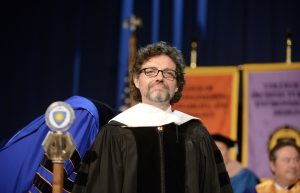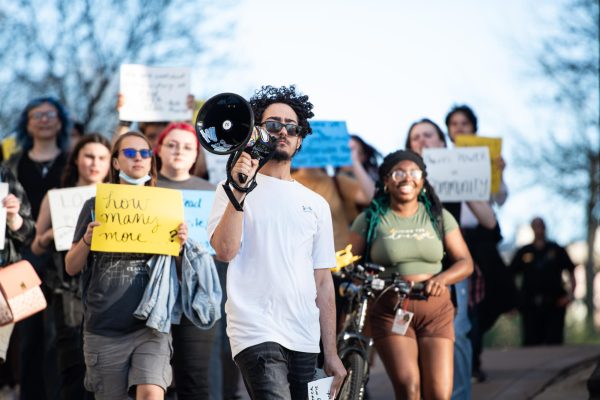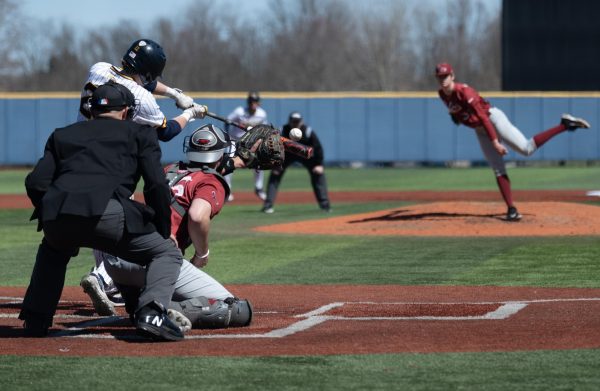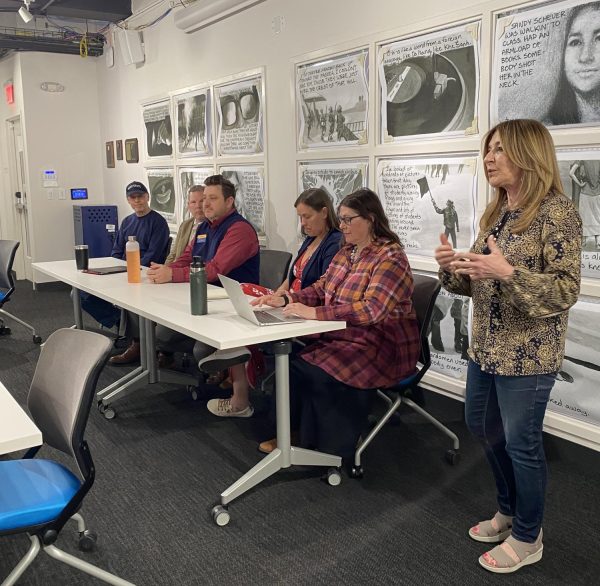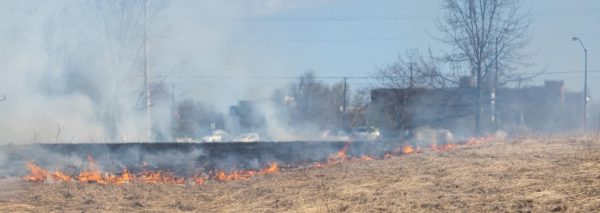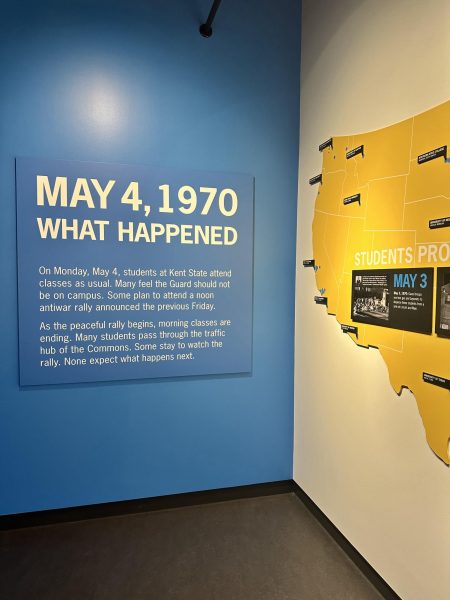Portage County residents discuss environmental concerns attached to fracking
January 26, 2012
var so = new SWFObject(‘http://www.staterinteractive.com/player.swf’,’mpl’,’665′,’450′,’9′);
so.addParam(‘allowscriptaccess’,’always’);
so.addParam(‘allowfullscreen’,’true’);
so.addParam(‘flashvars’,’&file=frackingvideo.flv&image=http://www.staterinteractive.com/photos/spring12/XXXXXXXXphotoXXXXXXXX.jpg&frontcolor=6666FF&lightcolor=EEEEEE&skin=http://www.staterinteractive.com/snel.swf&streamer=rtmp://flashmedia.kent.edu/fms-jmc/kentWired’);
so.write(‘frackingvideo.flv’);
Randolph resident Steve Kitchen found dark, blueish grey clay plugging his water well filter after a hydraulic fracturing well began drilling two miles from his home.
A month later the filter burnt out and cost $552 to replace.
“I’ve been there 20 years. When they put the well in, I had problems,” Kitchen said at a public meeting Wednesday night. “If it can reach me, it can reach you.”
Kitchen was one of many residents at Randolph Township’s community center to discuss the weight of fracking in the area.
Hydraulic fracturing is the extracting of natural gas and oil by drilling thousands of feet below Earth’s surface and blasting a mixture of water, sand and chemicals to break up the shale formation.
As fracking makes its way into Ohio, residents are worried about potential negative implications that come with it – one of which is the lack of control township trustees have over the matter.
Portage County prosecutor Chris Meduri was at the meeting to explain that the township is exempt from authority in oil drilling. In 2004, the General Assembly took that right away from local governments.
Trustees can’t do a thing about fracking, except host a meeting to shed light on both sides of the issue.
Rhonda Reda, executive director of Ohio Oil and Gas Energy Education Program, presented a slideshow defending and explaining what the non-profit does, including teacher workshops, science fairs, scholarship programs and fire training.
“The reality is, 20 percent of our electricity today is just computers,” Reda said, who lives just a half mile from a fracking well in Lincoln County.
She stressed the need America has for its energy to come from fossil fuels and for the amount of jobs fracking will bring, describing the reopening of Youngstown steel mills and hiring opportunities in railroad.
“We need to reduce our reliance on foreign energy,” Reda said.
Dan Lincoln, associate for Northeast Ohio Gas Accountability Project, saw it differently. He and Randolph resident Newt Engle emphasized the importance of residents doing their own research.
Lincoln focused on air pollution and water contamination thought to be a result of the fracking process.
He described the flow back of fracking water to possibly be radioactive. It picks up harmful chemicals from the shale, making the water more harmful coming back up than it was going down.
Engle’s wife, Sandy, is a member of Preserve Rural Randolph and said they chose not to sign a lease to have their land drilled.
“We have nothing to gain or loose,” she said. “We are telling the truth, the whole truth.”
Lincoln added the advantage Ohio has in being the last place of many to be drilled.
“If you don’t think this is going to happen, you’re not living in Ohio. This is where we’re headed,” Lincoln said pointing to a picture of rural Wyoming spotted with wells.
The next meeting will be Feb. 2 at 7 p.m. in the community center where residents will present a community Bill of Rights.









